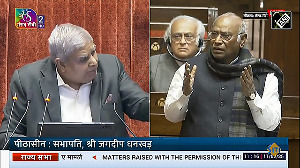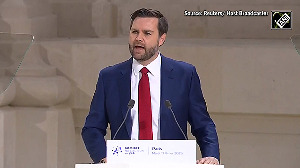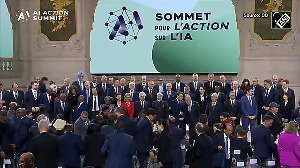The World Trade Organisation's second draft declaration for next month's Cancun ministerial meeting has factored in some concerns of the developing countries and suggested separate agricultural tariff reduction formulas for developed and developing countries, reduction of domestic support along with export subsidies, which are aimed to be phased out. It also provided a special dispensation for developing countries.
| |||||||||||
Unlike the first draft released on July 18, the second text circulated to members on Sunday, has recognised the differences between members. Commerce ministry officials said India's concerns on agriculture and industrial tariffs had been addressed to an extent but expressed their displeasure at the draft dealing with Singapore issues, comprising investment, competition, trade facilitation and transparency in government procurement.
The 21-page revised text has dealt with the four issues separately and has provided options to either commence negotiations at Cancun or continue with the study process, as demanded by developing countries. The options have been provided within square brackets indicating that differences still exist on the subjects.
Officials said that the revised declaration was more detailed than the skeletal text circulated last month. It, however, did specify any timeframe for fixing of modalities or the extent of tariff reduction in case of agricultural or non agricultural products though it called for renewal of "determination to conclude the negotiations launched at Doha successfully by the agreed date of 1 January 2005."
Members from the 146 member countries on Monday began their two-day deliberations under the aegis of the WTO General Council to discuss the revised text.
While the Trips and public health issue has not progressed beyond what was stated in the first draft, on industrial tariff negotiations the revised text, has supported a non-linear tariff reduction formula, with developing and least developing countries eligible to undertake lower commitments and also entitled to get longer implementation periods. It also called for reducing or eliminating tariff peaks, tariff escalations and high tariffs.
It proposed that members would be required to bind all non agricultural tariff lines, the percentage is to be negotiated, at an average level in a way that it does not exceed the overall average of bound rate of duties for all developing countries after full implementation of current concessions.
The revised text on industrial goods also said that pending agreement on core modalities for tariff negotiations, supplementary issues like tariff removal in certain sectors (like textiles and leather) would be kept open to negotiations.






 © 2025
© 2025